QuestionHi Denise,
My name is Misty and my horse is Dallas. He is a 1 year old (this month) Palamino gelding. I bought him when he was 6 months old. I am not sure but I think the guy I bought him from brought him straight from his mom right to my pasture. So Dallas seems to think I am his mom now. At first he was very scared of his new home and when I would leave the pasture he would jump the fence and run straight to me and bury his head in my chest. It was sweet but I had to put a hot wire up to keep him in the pasture. He has since stopped jumping the fence. (Thank Goodness)
I have worked with him since day one walking him with a halter and lead rope. We have for sure have had massive issues with this. Like not wanting to walk so I took the lead rope around his butt and when he would stop I would give him a tug. He also went through a spell where when he didn't want to walk anymore he would just lay down on the ground and stiffin out his legs. At this point I just made him get up and keep walking.
I have got him used to being tied up. This has never an issue with him he seemed to like it. It seemed like when he didn't know what to do he would go to the tree I would tie him to and stand there not tied up at all.
I had an issue of him raring up so Every time he would do this I would give him a smack with the lead rope. So this has stopped as well.
I have lately beed taking a throw rug down and putting it on his back when we do our walking. He doesn't seem to mind it. I have also been taking a plastic sack down and rubbing him with it.(so he won't be scared of noises)
Keep in mind this is my first baby horse to start from scratch. I love this horse dearly and it seems like we are starting to develope a stronge bond. He can just hear me talking up to the house or see me outside and he starts making all kinds of vocal noises. So Sweet!!
My question to you is what's the next step? I feel like I am at a stand still on what I need to do with him. I'm sure you can tell I have just been winging it so far. I just don't want to cheat Dallas out of being the best horse he can be. And is it a smart thing to spend as much time with him as I do? He seems to be kinda Jealous of me when other people are down to the barn with me. He doesn't want them near me. I am not sure how to break him from being like this. It's like he is trying to protect me or something. I always get on to him but it hasn't sunk in yet. I hope that doesn't sound crazy. I am not sure if horses can be jelouse or not. lol he also goes after the cat and the dogs when they go in the pasture with me.
I hope you can help. And I am thanking you in advance
for any and all help you can give.!!
I look forward to hearing from you,
Thanks Again,
Misty and Dallas
AnswerHi Misty!
I think it it great to have that sort of relationship with your horse. The one aspect of the relationship to keep very, very clear is "Who is Leading the Dance?" Make sure there is NEVER a question in his mind as to who the leader is...PS: that would be YOU!
You need to be a leader that your horse can trust. You need to always have a plan and know what it is that you want. Your horse acting jealous is just his way of taking over and becoming the leader of your little herd of two. It is in his nature as a male (hopefully a gelding by now) to dominate, rule and set boundaries as to who is allowed in the herd and who is not. The herd dynamic is very fluid and strong. Never take it for granted. If you horse is allowed to decide who comes into the pasture or barn and who does not, it is obvious that his status is above yours in the herd. As he grows older, you will be viewed as subordinate and he will begin pushing you around. Don't let it get this far! You have to have a "feel" about you that tells Dallas that you are his leader and teacher. Think of some of the humans in your life that you really like/love and really respect. The person that you will gladly follow and do whatever they ask of you, someone that you would never push back against because they were fair but tough when you did the wrong thing...this is how you need to be with your horse. NEVER, EVER punish him after the fact. If he were to kick, bite, bolt, strike never punish him. After the negative behavior happens it is too late to change it. Be aware of what happens BEFORE what happens, happens! This is really important. If you PUNISH after the bad behavior, it sets up a war with the horse that you will never win. He bites or chases someone out of the pasture and you whack him...this causes him to become even more aggressive and to lose trust in you. Not good. What I want you to do is to be VERY aware of what your horse is shaping up TO do BEFORE he does it! You know him so very well, this will be easy for you. You know what he looks like and how he shapes up his body and prepares to drive someone off...right?! Change his mind BEFORE it gets to this point. It may be something as simple as getting him to roll over his hindquarters, drop his head or just to move a foot, if your timing is good. If you miss the signs that something is up, you may have to do more to change his mind, it may even be a nip from the end of your lead rope. Only do what it takes to change his mind and no more. Be very aware of what he is telling you. After you ask him to prepare to back up softly, does he lick and chew? This is your sign from him that he understands what is going on and it feels good to him. Notice what his eyes are saying, what are his ears doing? Is he attentive to you? How much pressure does it take for his attention to come back to you? All of these simple things will help you is establishing a real working relationship with your horse. After all, your horse is searching for a leader he can trust. Make sure that person is you.
Small objects scooting about in the pasture will really grab the attention of your horse. Try dragging something different from the end of a small rope across the pasture. You will see very clearly the horses protection/prey drive kick in. Your horse will track up on the small object and sniff it and maybe even strike at it or stomp on it. You can use this natural horse behavior to help desensitize him or just use your imagination on the other ways you can get this small behavior working for you. Be aware that some horses have more of a prey drive than others. Mares are usually more subtle and geldings and stallions are more aggressive.
There are so many things you can do with your yearling. Make sure you are teaching him how to disengage his hind quarters and how to get his front quarters to change direction. This looks similar to a haunch turn but very different in execute. You first yield the hind quarters and then keeping your feet still open your hand to the new direction and send the fronts. The horse is following a feel and not getting pushed into a turn. I think the best thing here is to give you some homework and have you watch some DVD's. This will help make it very clear on how to teach these skills and add another layer of education for you and your colt!
HOMEWORK:
"Ground Work" DVD by Buck Brannaman
"Ground Work" book by Buck Brannaman
"Back to the Beginning" DVD by Ray Hunt
"True Horsemanship through Feel" book by Bill Dorrence
Also, go back and read some of my past answers on colt starting, ground work, etc...Some of these other answers may say things in just the right way for you to really understand.
Misty, you are doing just right by your colt. I'm so happy to see you digging for the good stuff and being really concerned about his education. This will be a very special horse. Enjoy every second! Keep me posted!
Smiles! Denise
Hi Misty! I hope you got this answer. I wrote it several days ago and I noticed on my log that is has not been "read"! I'm hoping you have seen this. Let me know! Smiles, Denise

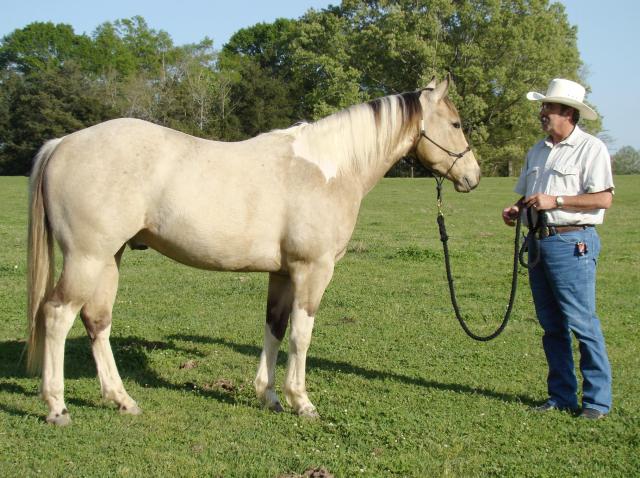 Bit problem
QuestionI have an 8 year old quarter horse mare.
Bit problem
QuestionI have an 8 year old quarter horse mare.
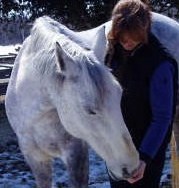 putting halter on
Questionhi,
Im probably going to sound like an complet
putting halter on
Questionhi,
Im probably going to sound like an complet
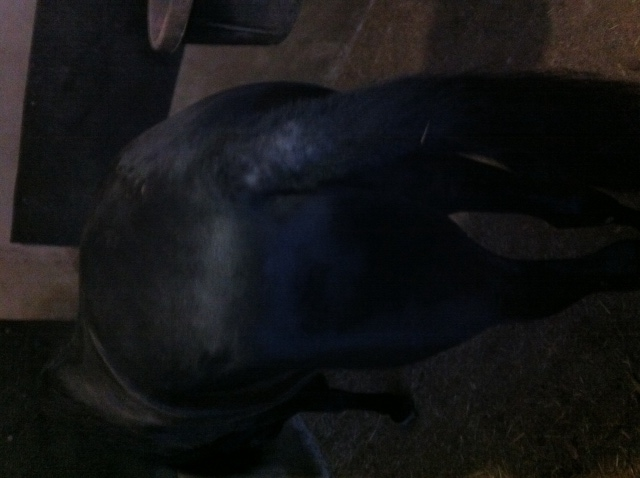 Hair loss
Question
Tail Tail close up
Rick: i have r
Hair loss
Question
Tail Tail close up
Rick: i have r
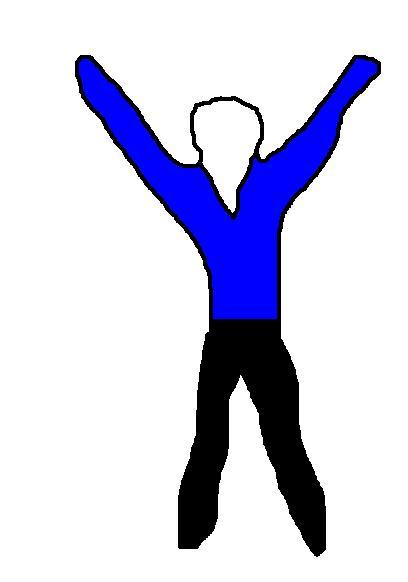 throwing hands into the air
Questionthrowing hands into th
QUESTION: hello s
throwing hands into the air
Questionthrowing hands into th
QUESTION: hello s
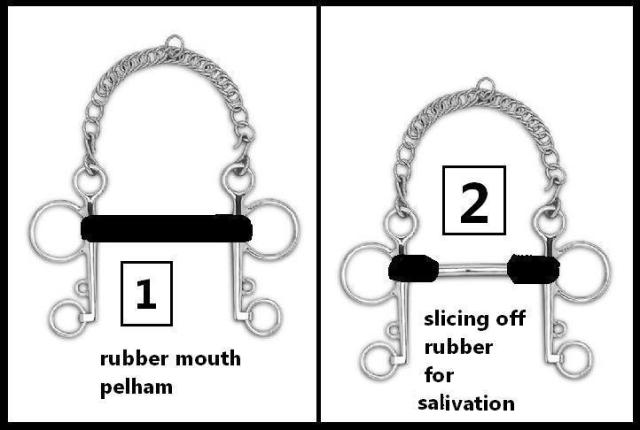 slicing off rubber on the central part of mouthpiece irrespective of any bit it is
Question
slicing off rubber on
hello maam, as you said
slicing off rubber on the central part of mouthpiece irrespective of any bit it is
Question
slicing off rubber on
hello maam, as you said